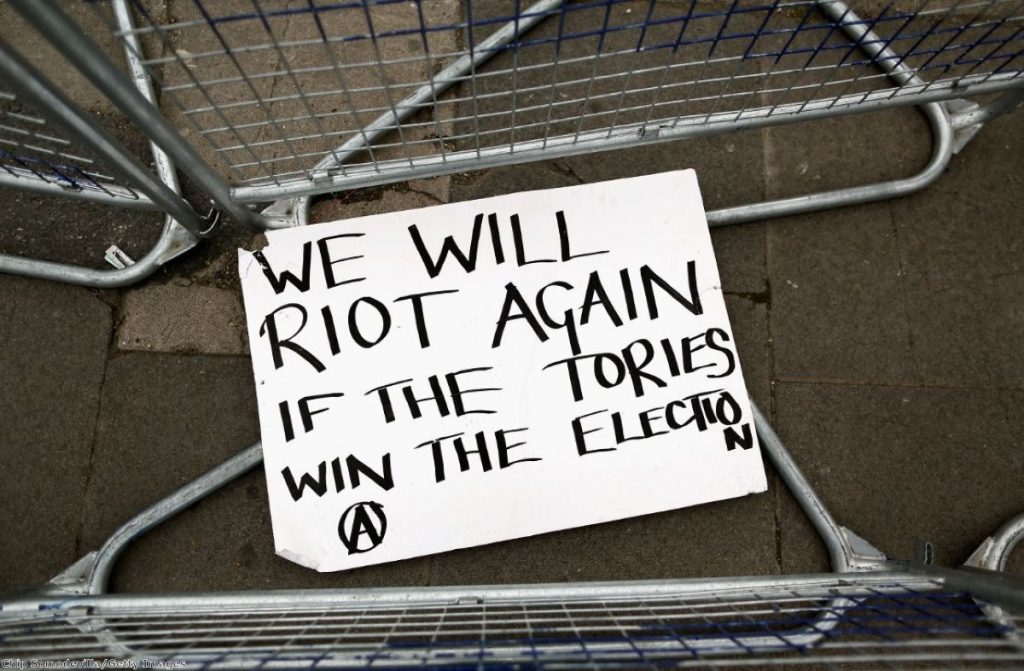Analysis: What the Conservative victory means for Britain
Now we know the make-up of the next parliament, and the astonishing outcome of an election that has given David Cameron the chance to lead a Conservative-only Cabinet, we can start to build up a picture of what the next five years has in store for British politics.
We treated the party manifestos differently in this campaign. Because of the nature of coalition compromises their policies were viewed as mere possibilities, not plausible outcomes. Suddenly that has all changed. The Tory manifesto is now the future of the UK. You can read it here – or just glance through the points below to get your head around what the future holds.
General Election 2015: Conservative Manifesto key points ???? http://t.co/uQWfuVcp6u
— Keira Macalister (@keiram17) April 29, 2015
Question-marks over Britain's place in Europe and the world, and our internal unity as a country, will continue to hover over a Conservative government. Cameron has no choice but to stick to his promise of delivering an in-out referendum by 2017. He must hope to achieve a renegotiation with Brussels that convinces a majority of voters – not to mention a majority of his own MPs – that the UK is better off remaining inside the EU. If he fails, this prime minister will go down in history not because of today's victory but because of a foreign policy failure of historic proportions. It is Cameron's style that he puts off difficult decisions until they come to a high-stakes reckoning – that was how it was in 2014 with the independence referendum and that is how it will be next year, too. What was once a narrow possibility, cast into doubt in the scenario of a Tory minority, is now set to become very real.

Then there is Scotland. The Conservatives fought their campaign warning against the dangers of a Labour-SNP government. Their strategy has succeeded and so they must confront a part of the United Kingdom dominated by a party that wishes to secede from it. One option might be to offer Nicola Sturgeon the full fiscal autonomy she has asked for – a poisoned chalice in the view of many. Regardless of the tactics, unionists of every party shade will urge Cameron to adopt a strategy of starting to fight the next independence referendum now. The Scottish, unionists will demand, need to be told they are loved sooner rather than later.
Keeping the peace with the SNP hordes could be complicated by the constitutional reforms we're likely to see pushed through in the next five years. The Conservatives intend to implement their English votes for English laws plans and will look to cut the size of the Commons from 650 to 600 MPs. That will shake up the way our democracy works, in many ways for the better, but will prompt bitter accusations of partisanship from the opposition benches.

And then there's the economy – the issue on which the Tories fought and ultimately won this election campaign. The Conservatives' plans have been viewed as one of the extremes on offer to voters. Millions of voters will fear their hard and fast approach to cutting the deficit which prefers spending cuts to tax rises and seeks a surplus by the end of the coming parliament. Others, particularly business types, will be reassured by the steady increase in Britain's fiscal credibility. As part of these changes the UK's most vulnerable face £12bn of benefit cuts. The middle class will enjoy relief as the threshold for the 40p tax band rises.
The austerity agenda will impact on areas of public services, although the Conservatives have made clear they will provide the extra £8bn of cash the NHS needs by 2020. Education policy is likely to be dominated by the continued rollout of free schools. Britain may fail to meet its target of spending two per cent on defence, but there is a clear majority for the like-for-like replacement of Britain's nuclear deterrent: Conservative and Labour MPs will combine to marginalise their SNP, Lib Dems and Plaid opponents on an issue that's dominated the last few weeks.
On home affairs, legal aid cuts will continue to bite and the police face further cuts. The target of cutting net migration to the tens of thousands may have been abandoned, but it remains an 'ambition'. Ukip may not have many MPs, but the legacy of its campaigning is a raft of measures making it harder for new arrivals in the UK to claim benefits. There is likely to be a clampdown on extremists, too.
In parliament the dynamic is going to be fascinating. Eric Pickles tweeted earlier that this was a "perfect day" – but his party has not succeeded in winning a weighty advantage that would, in most elections, far exceed the single-figures majority won yesterday. This is enough to retain power, true, but only in a way that relies on a sensitive handling of the Commons. Conservatives will be boosted by the fact that they face a divided opposition – the SNP and Labour will vote together on many issues but will not do so on every issue. The Lib Dems and DUP will have to be treated delicately, but will not always vote against the government either.
The prime minister's future will, as the years pass, come to dominate the headlines. Cameron's revelation that he does not intend to serve a third term at the start of this year's campaign instantly sparked speculation over whether he would look to resign before 2020. Expect endless stories about the Conservative leadership – articles which arguably distract from what the Tories will be getting up to in their first majority government in many young voters' lives.




